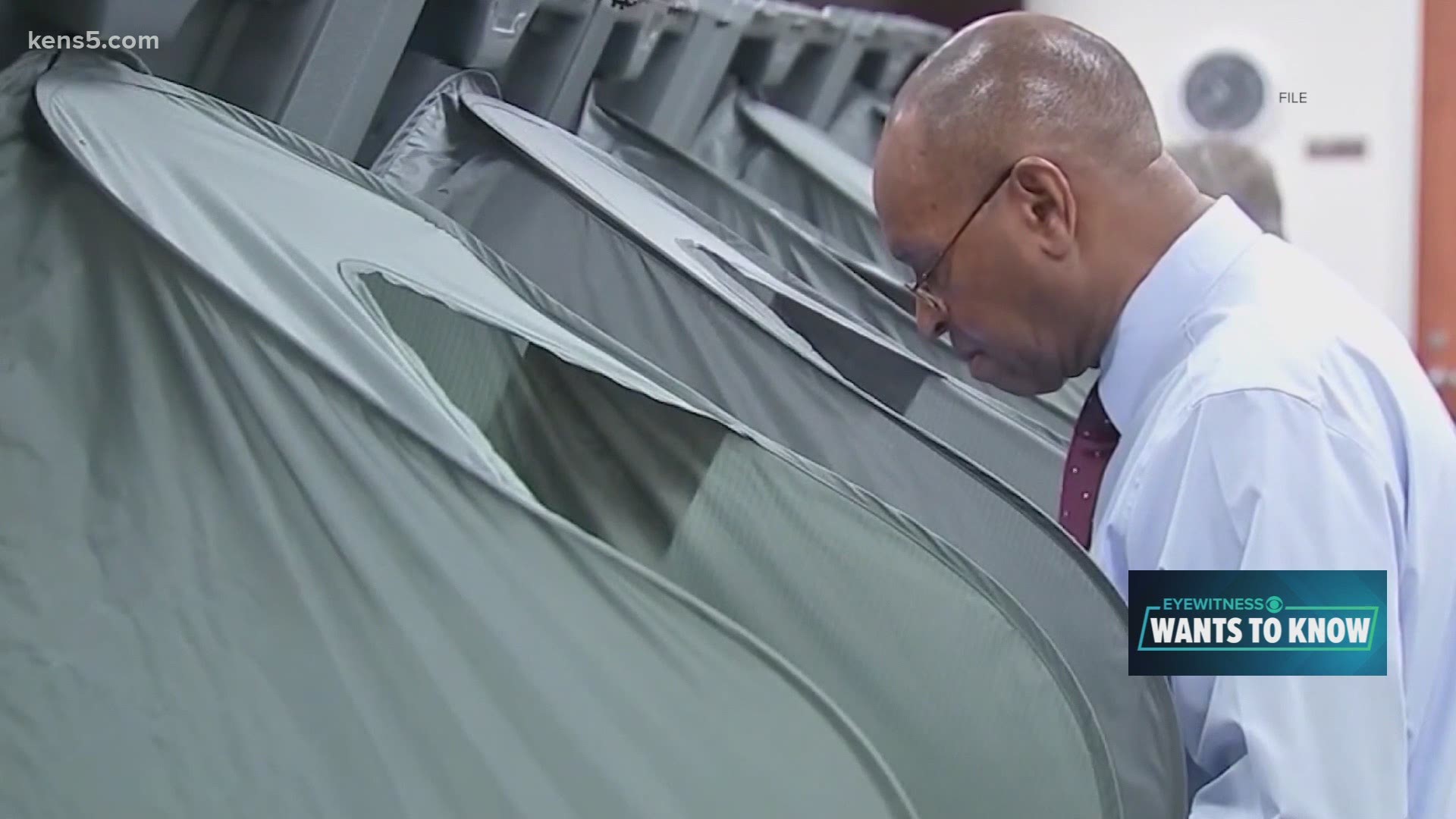SAN ANTONIO — Voters are standing in long lines to make sure their ballot counts, but schemers are counting on the election to get your money and personal information.
“There’s really absolutely no situation on Earth where the board of election will need your checking account number or need your credit card number," said Alex Hammerstone, head of risk management at TrustedSec, a cybersecurity company that advises many of America’s top corporations.
Here are a few voting schemes to be aware of: Ignore offers for new ways to vote. You can only vote in person or by mail in the U.S.
“If you’re being offered a way to vote by telephone or vote online, you know, that’s something that should absolutely raise a red flag,” said Hamerstone.
Disregard instructions directing you to pay to vote. They may ask for administrative or processing fees, maybe even money to get you to the head of a long line.
“You never have to pay to vote,” said David McClellan, president of SocialCatfish.com.
“We’ve had a lot of hard-fought political battles and a lot of people have really given their lives to guarantee the right to vote without a poll tax,” said Hamerstone. “So if you’re getting a threat that you can’t vote without paying, that’s going to be a scam.”
Be wary of communications that tell you your voter registration is incomplete and your vote is in jeopardy of not counting.
“That’s a tricky one because, really, we’ve seen some culling of some of the voter registration records. So there certainly maybe time where you receive notification. So if you’re concerned about something you’re receiving, contact your board of elections,” said Hamerstone.
“Go directly through the government websites,” McClellan added. “I would never handle something over the phone and somebody is not going to call you to let you know that.”
You can check if you are registered to vote online in Bexar County at bexar.org.
Also, be careful if a campaign asks for money.
“They’ll call and say, you know, 'We’re collecting money on behalf of candidate A or B and we’re behind in the polls,'” Hamerstone said. “Then that money kind of goes off into the ether. It goes into scammers’ pockets and they might take a lot more. You may want to donate $10 or whatever else it might be and they might drain your whole bank account.”
Contact the campaign directly to donate.
Plus, be skeptical of the information you are asked for if you sign a petition.
“You don’t have to give your Social Security number or your bank account information,” McClellan said.
McClellan gives an easy way to check and see if you should be suspicious of a voter or political website sent to you.
“There’s a website called Who Is,” he said. “You can see when the website was originally registered. If a website was just registered, I would be super cautious.”
The biggest tip off any voter communication could be a scheme is there is always a sense of urgency to take action.
“They know that, oftentimes, if you’re able to think about the scam and kind of think it through, you may change your mind,” Hamerstone said. “So they’ll want you to take action quickly.”
So quickly block the sender of any call, text or email you receive that you did not request.
If you have a question for Eyewitness Wants To Know, email us EWTK@kens5.com or call us at 210-377-8647.

